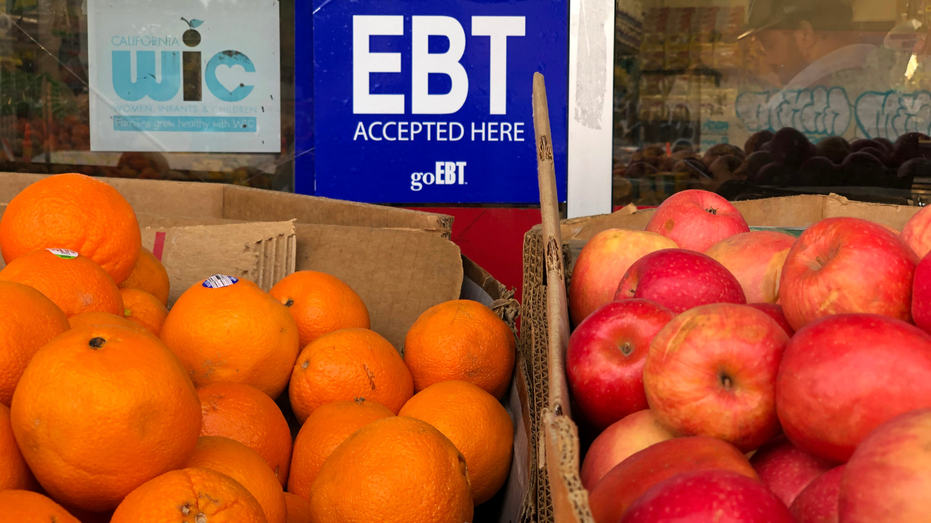Wisconsin to vote on work requirements for welfare amid workforce crisis
Wisconsin's workforce participation rate is worse than the height of the COVID-19 pandemic
'Generous' welfare programs exacerbate worker shortage: Report
FOX Business' Hillary Vaughn reports on a new study which found existing unemployment benefits helped fuel a labor downturn.
Work requirements for those on welfare will be on the ballot in Wisconsin, the state that established a national model for welfare reform in the 1990s.
The ballot advisory question comes in the midst of a nationwide low workforce participation rate, as many Americans are still on COVID-19-era public assistance programs while employers struggle to fill jobs.
Wisconsin’s off-year general election is on April 4, and it includes a state Supreme Court contest, local school board races and other ballot questions.
The advisory question asks, "Shall able-bodied, childless adults be required to look for work in order to receive taxpayer-funded welfare benefits?"

A sign noting the acceptance of electronic benefit transfer cards that are used by state welfare departments to issue benefits is displayed at a grocery store on Dec. 4, 2019 in Oakland, California. (Photo by Justin Sullivan/Getty Images) / Getty Images)
Though advisory questions are non-binding, the outcome could put pressure on Democratic Gov. Tony Evers to support work requirements, said Republican state Sen. Chris Kapenga.
"We are confident the public supports this. We think this will put public pressure on the governor," Kapenga told Fox News Digital.
Kapenga has focused on welfare reform during his time in the legislature and recalled that when former Gov. Tommy Thompson signed the Wisconsin welfare reform in the 1990s, Democrats and the media "predicted Armageddon."
Instead, it became a national model for bipartisan legislation supported by then-President Clinton and then-House Speaker Newt Gingrich.
The state Senate voted 22-10 on Jan. 17 to put the question on the April ballot, while the state Assembly approved the ballot language on Jan. 19 by a vote of 62-35.

The Wisconsin State Capitol building in Madison, Wisconsin. (iStock)
"This has bipartisan support in the Legislature," Kapenga said. "This adds another layer of pressure on the governor. We are not the majority parity in every branch, so we have to use what power is available."
LARRY KUDLOW: ‘MORE WELFARE WITHOUT WORK’ IS THE ‘RADICAL DEMOCRATIC BATTLE CRY’
Nonbinding advisory questions are common in Wisconsin, to give the Legislature direction, said Angela Rachidi, a visiting fellow at the Badger Institute, a Wisconsin free market think tank.
"Republicans have long favored work requirements. If it fails, Democrats could use it to reframe the debate," Rachidi told Fox News Digital. "I anticipate it will win in a lopsided victory. If there is a surprise, and people are not in favor of work requirements, then legislative initiatives will slowly go away."
The Wisconsin unemployment rate is just 3.3%, but with more than 200,000 job openings, the state’s workforce participation rate was 64.7% as of December 2022, according to the U.S. Bureau of Labor Statistics (BLS). That is worse than the workforce participation rate during the height of the pandemic in 2020, when BLS numbers show the labor participation rate remained at about 66% or higher.
The 1990s Wisconsin welfare reform added work requirements primarily to recipients of what is now called the Temporary Assistance for Needy Families, which is funded by a federal block grant to states.
New work requirements would likely also apply to Medicaid, a federal-state medical insurance program for the poor, as well as food stamps and programs funded by the state, Rachidi said.
Nationally, there has been a strong connection between welfare benefits with no work requirements and low workforce participation, according to research published last year by the Foundation for Government Accountability.
GET FOX BUSINESS ON THE GO BY CLICKING HERE
The group notes more than 1.6 million people — about a quarter of the Wisconsin’s population — are enrolled in BadgerCare, and almost 300,000 of those are able-bodied adults with no kids in the household.
"The workforce crisis in the Badger State has been driven largely by rapidly expanding welfare programs like food stamps, BadgerCare, and other cash benefits that, for three years, have been disconnected from work," said Sam Adolphsen, policy director for the Foundation for Government Accountability, in a statement.




















